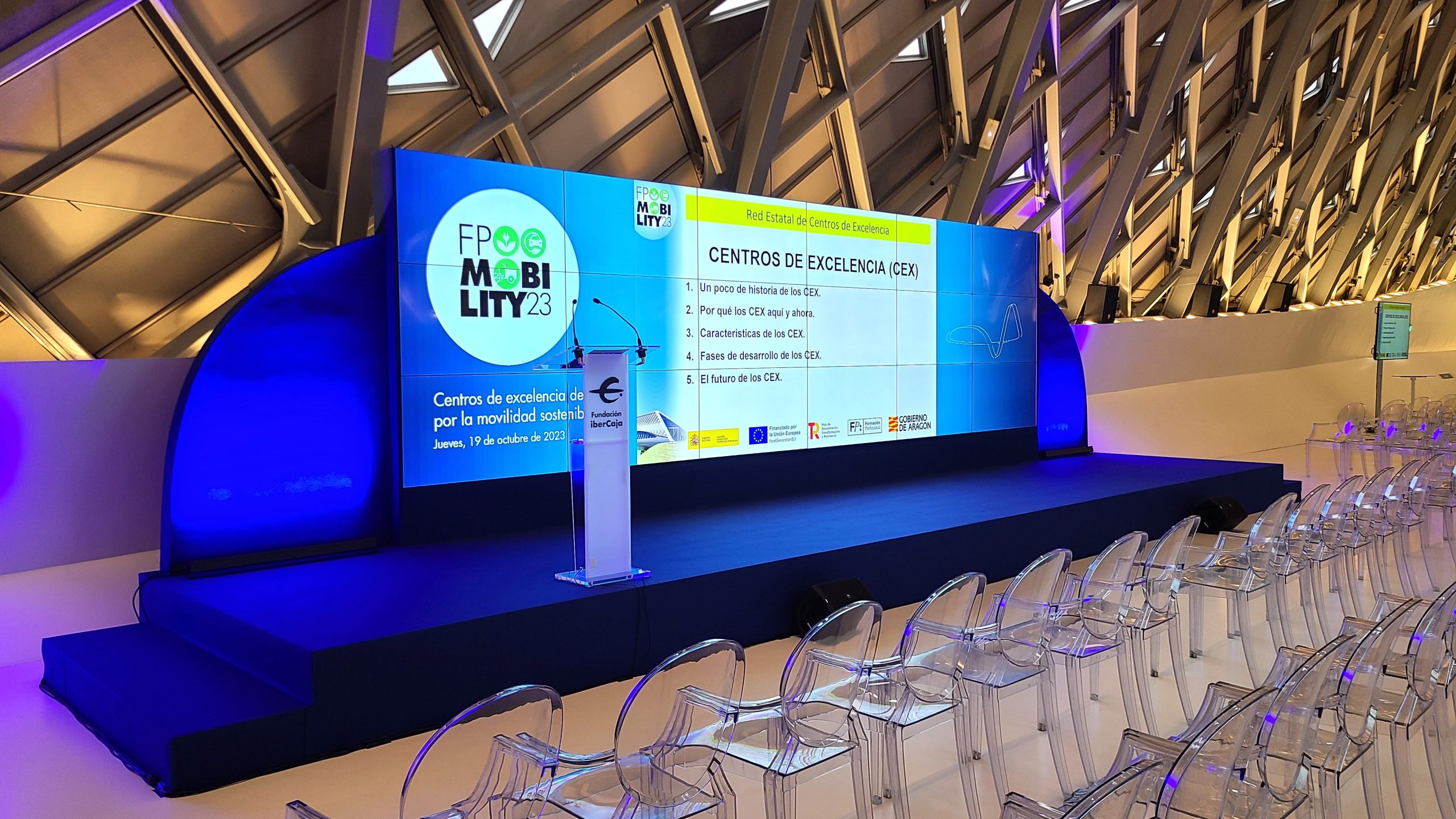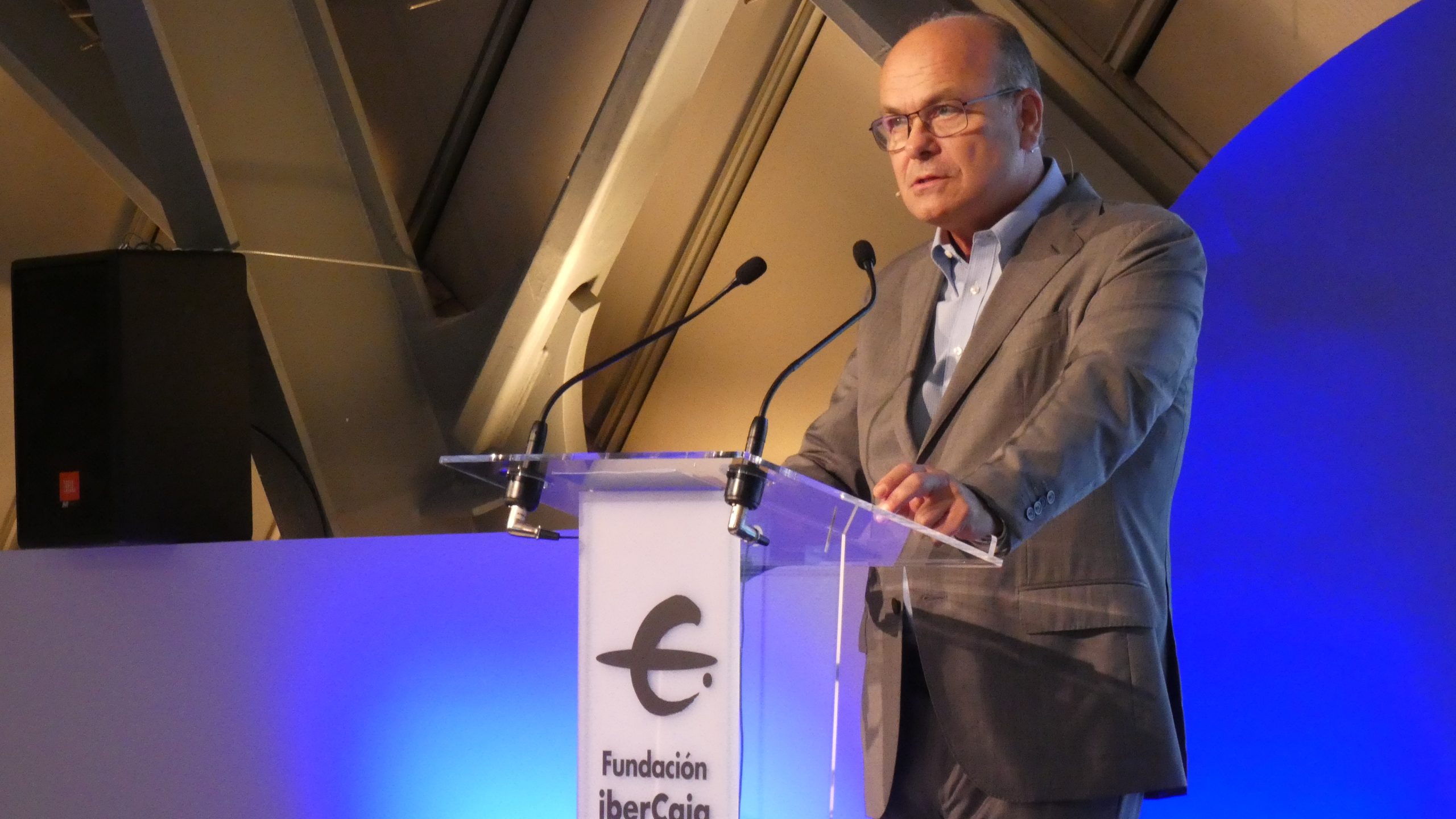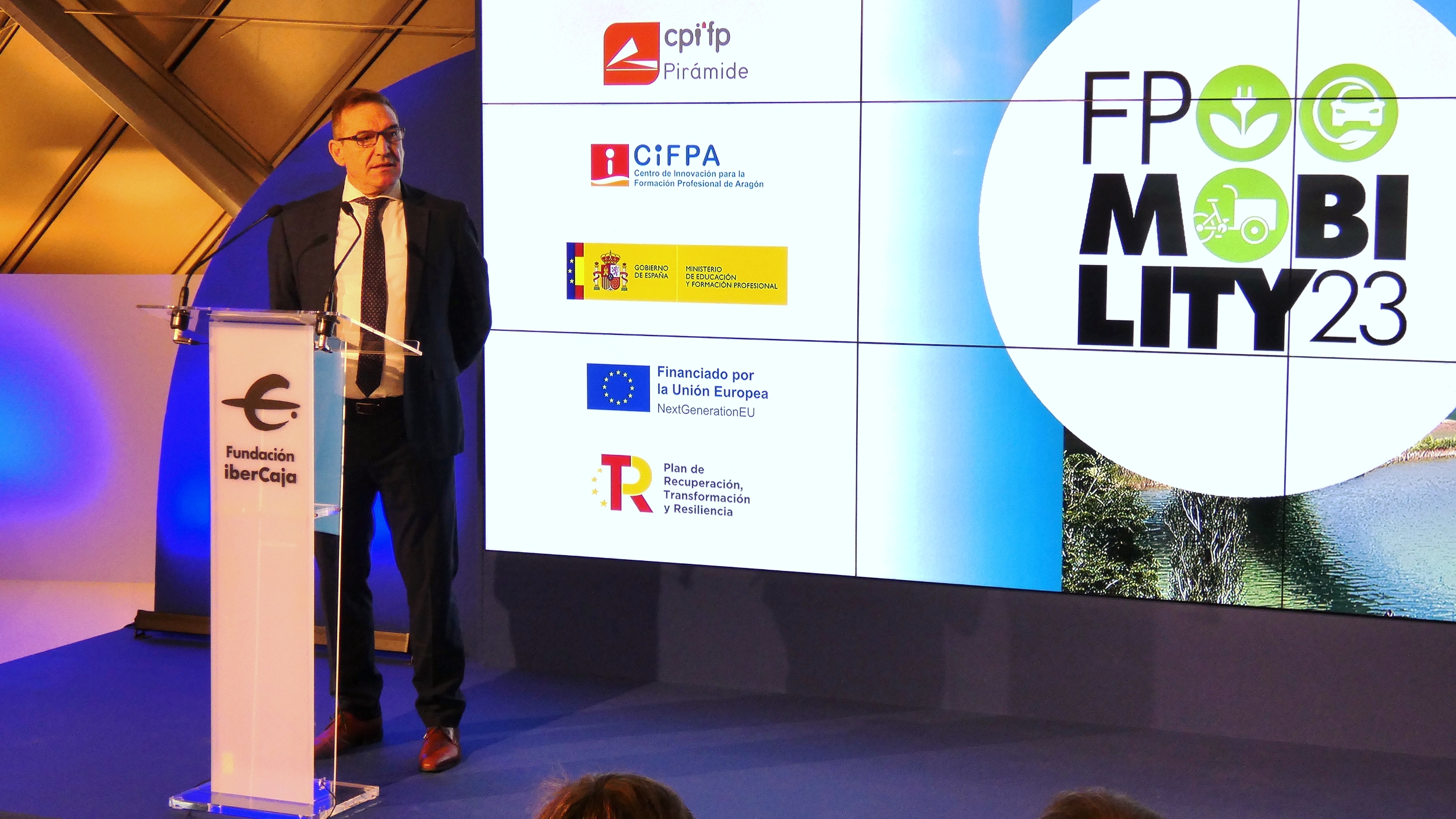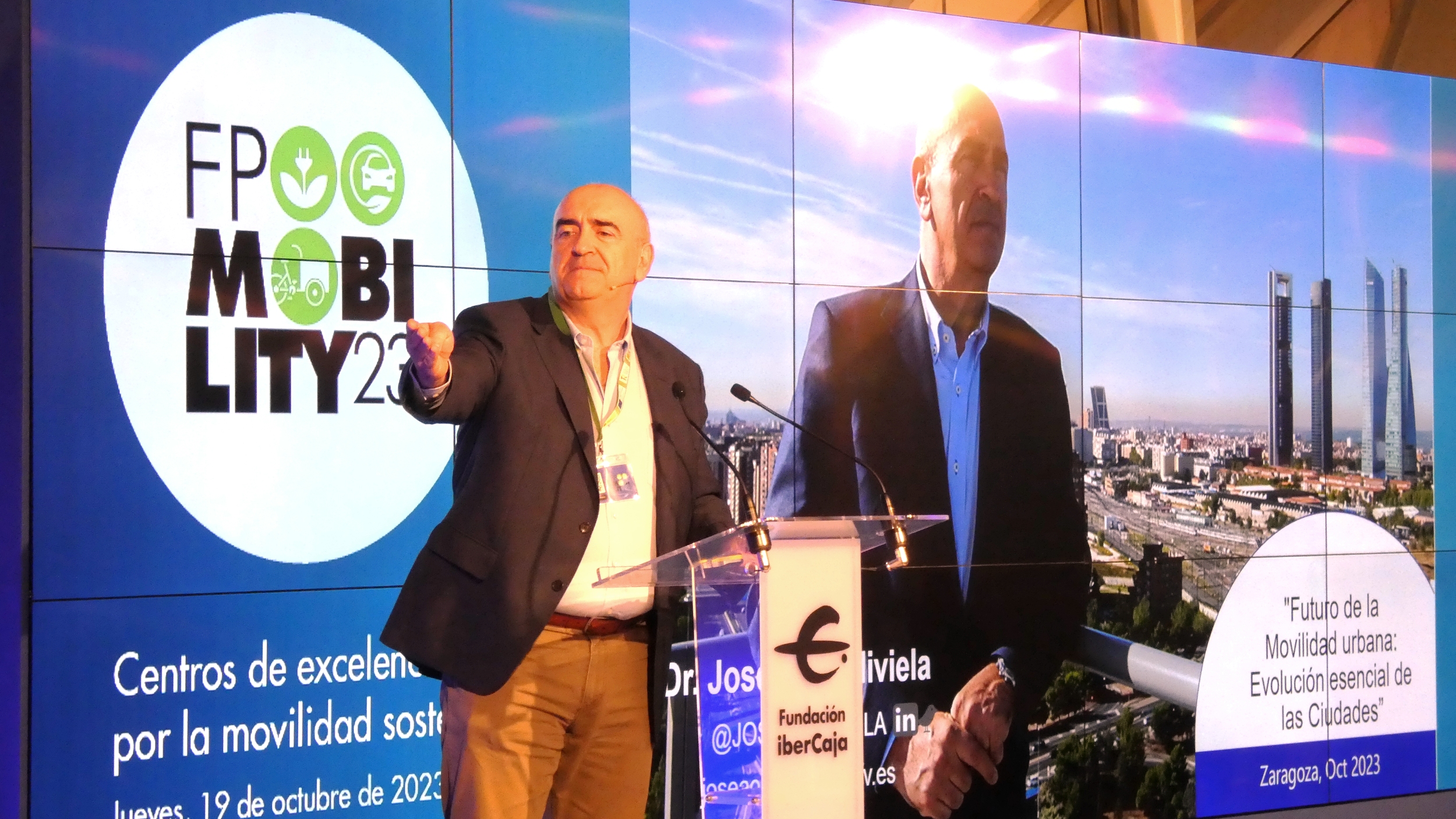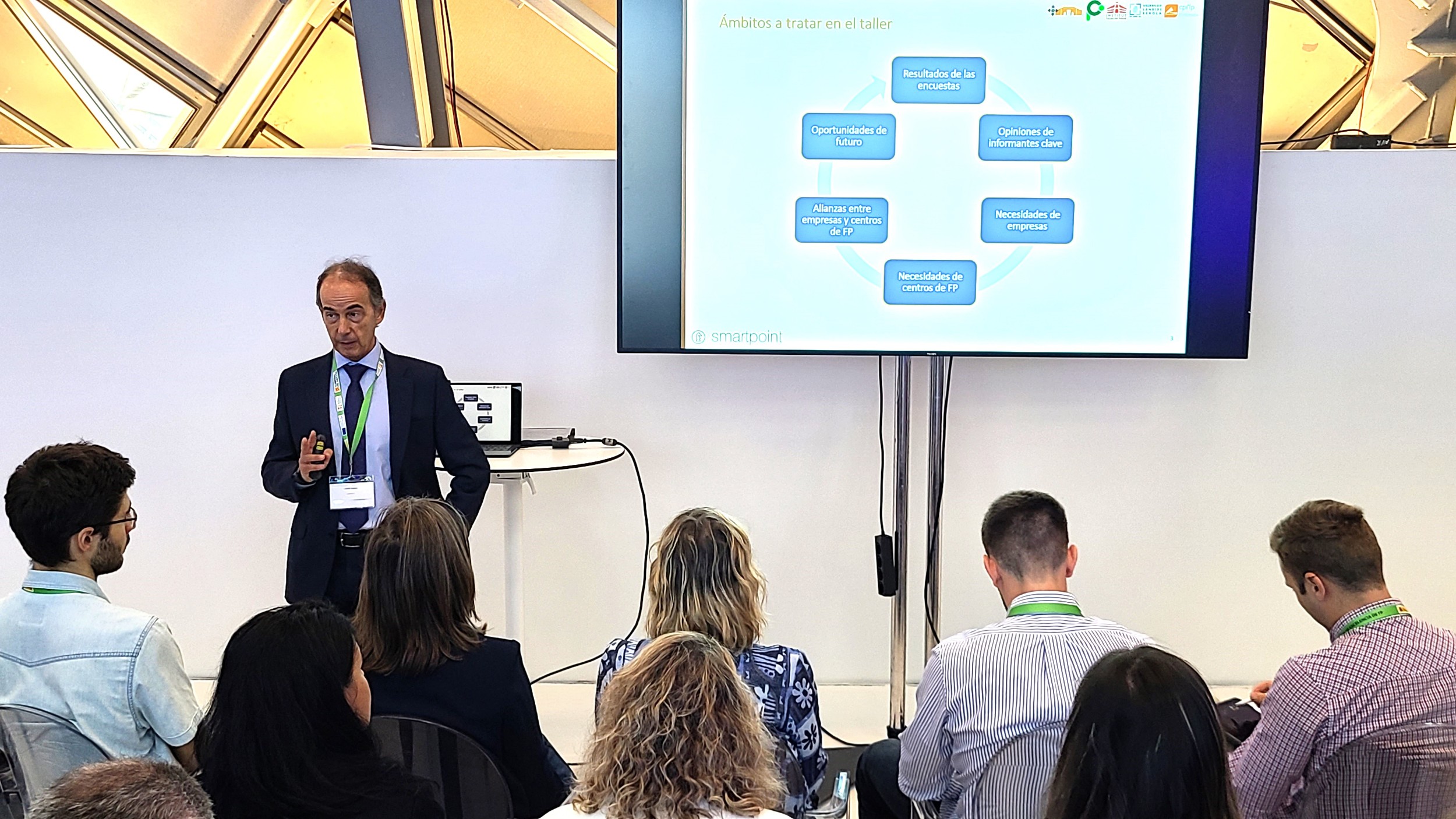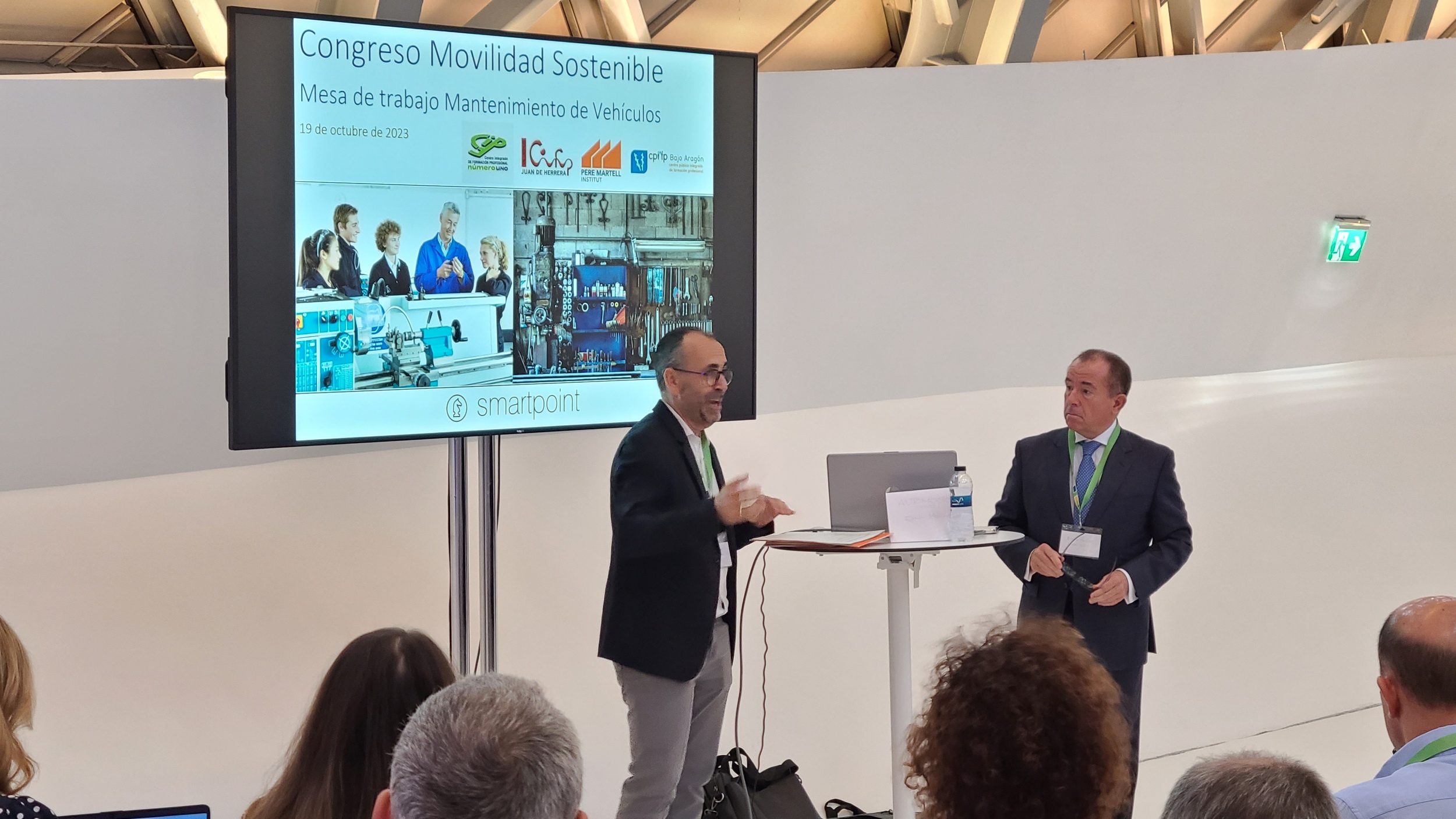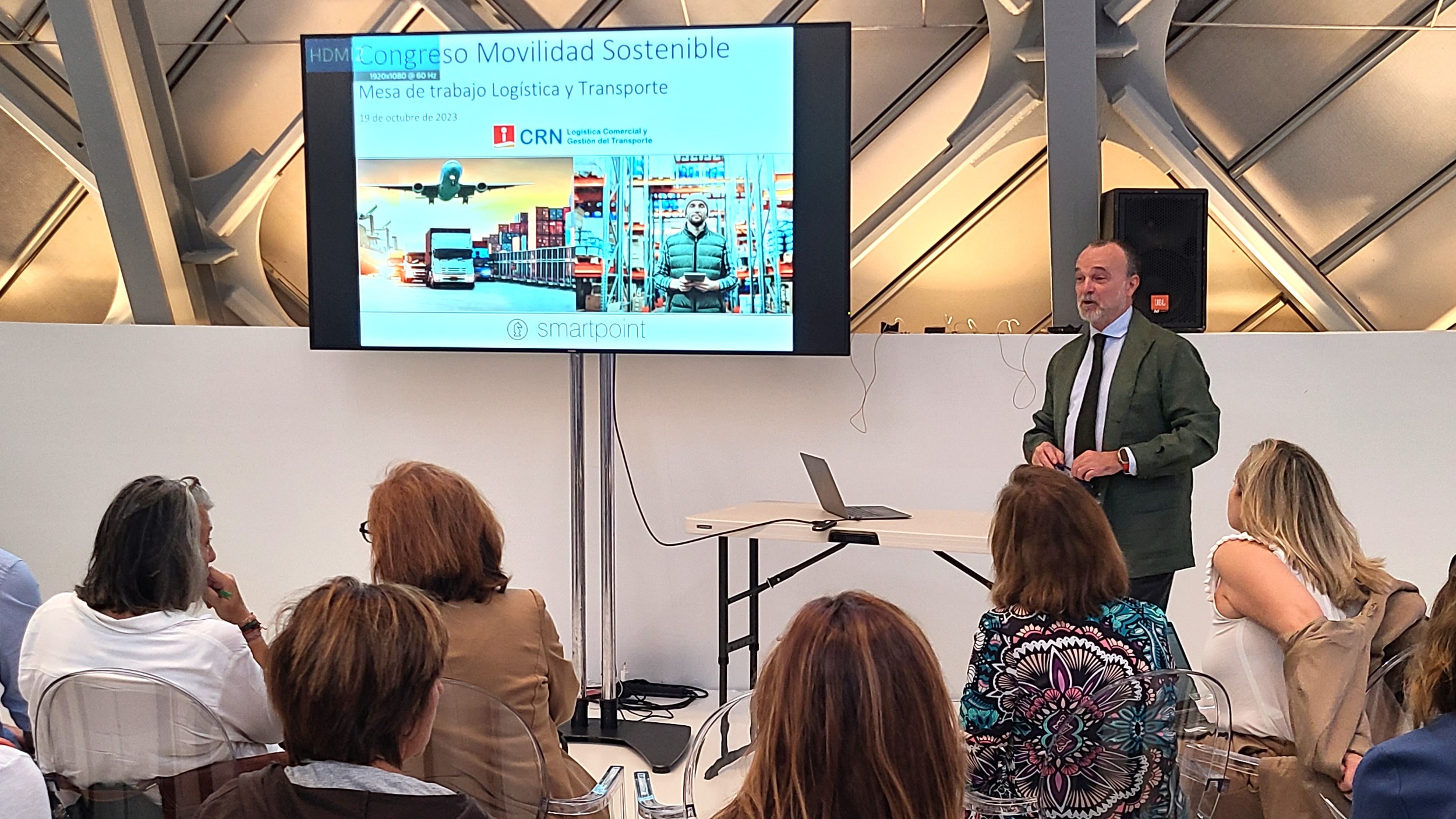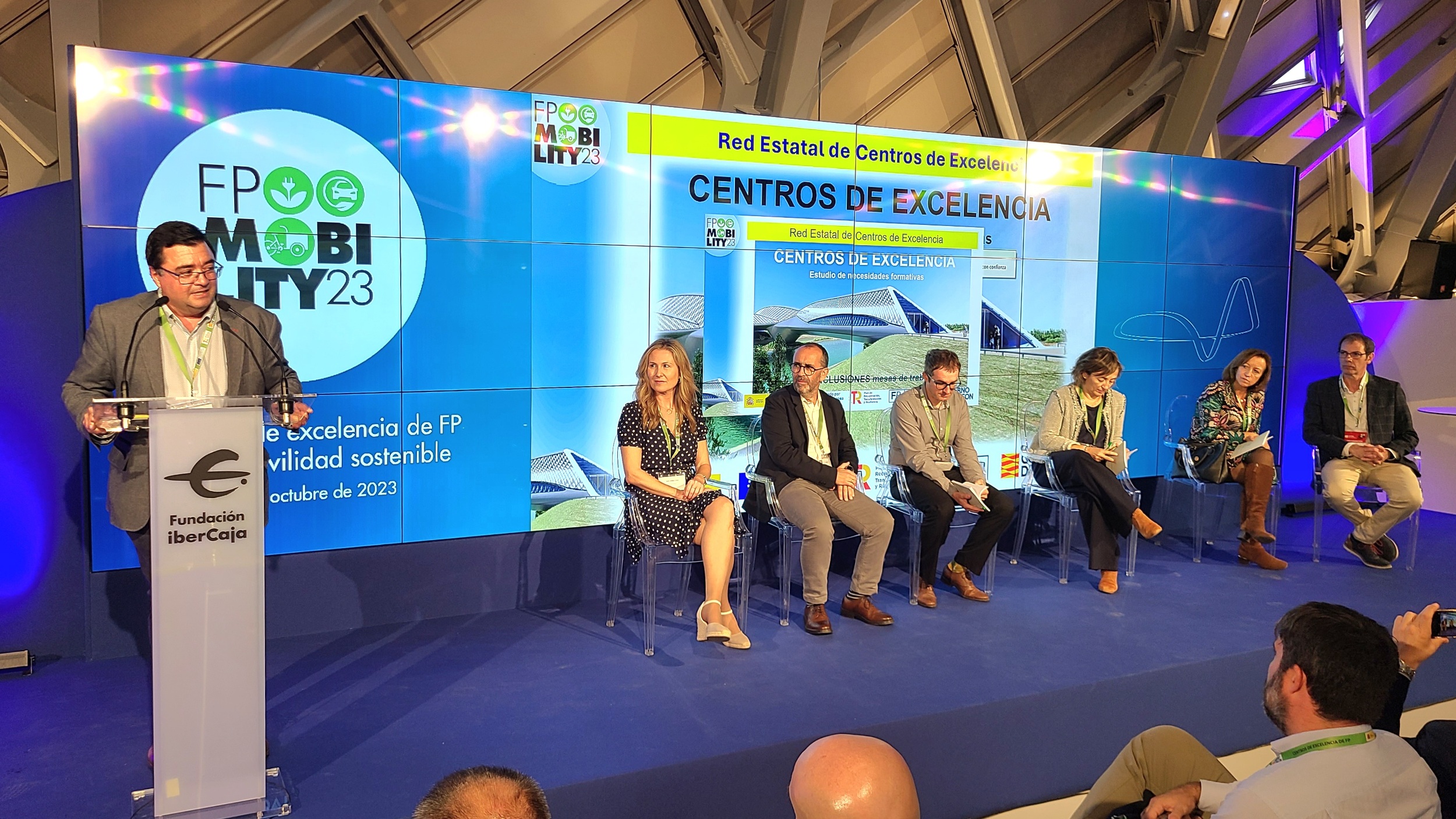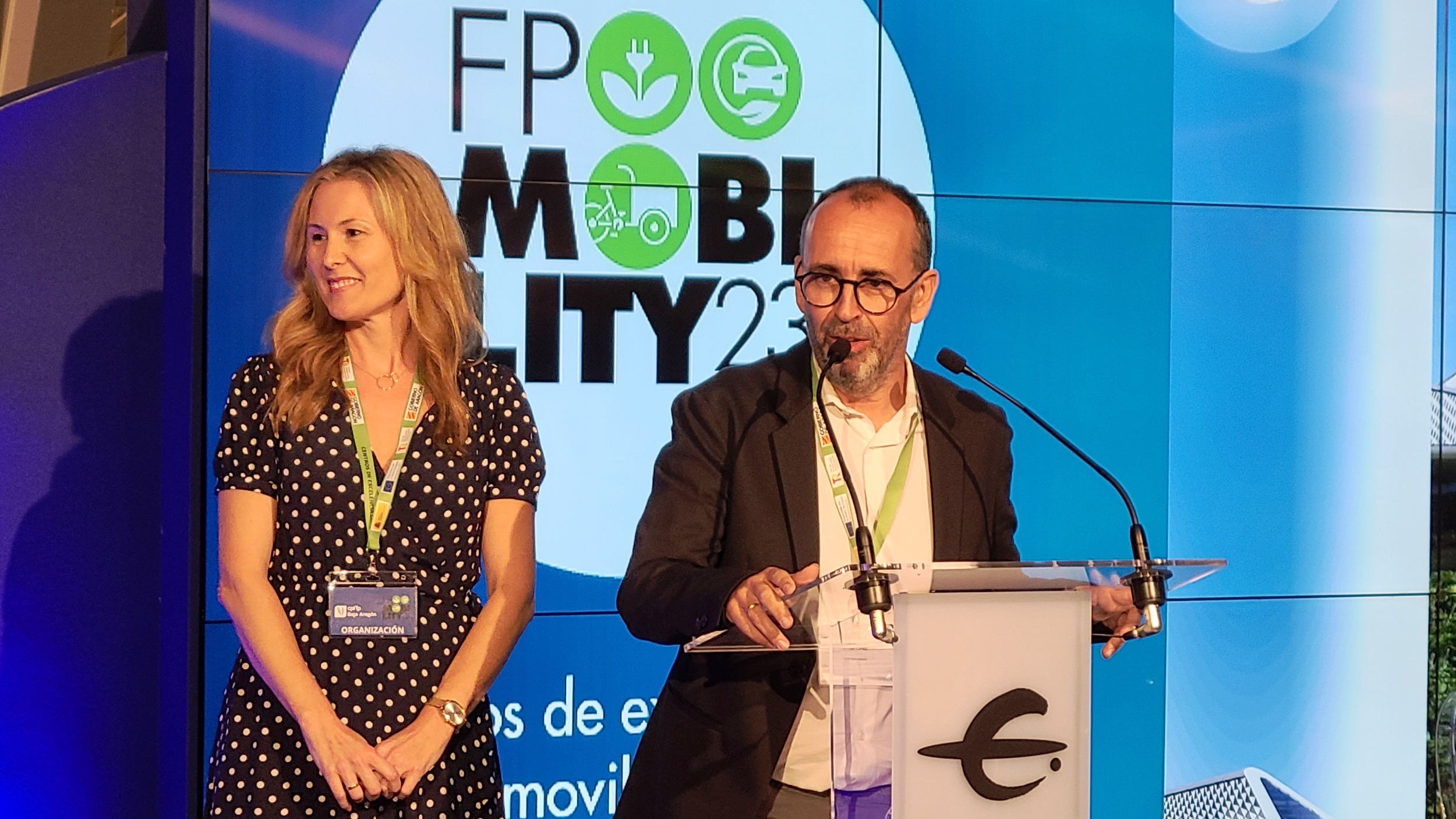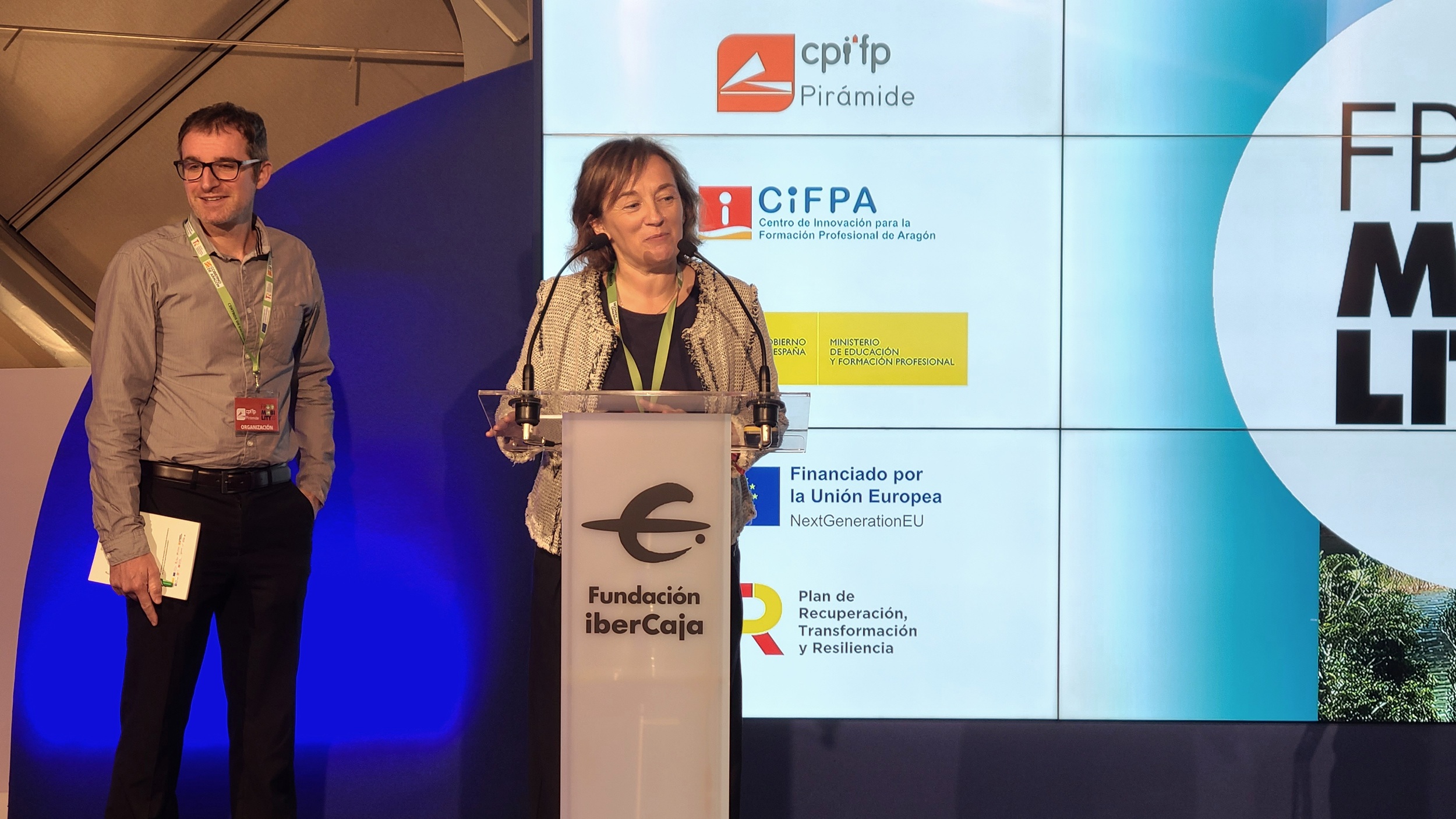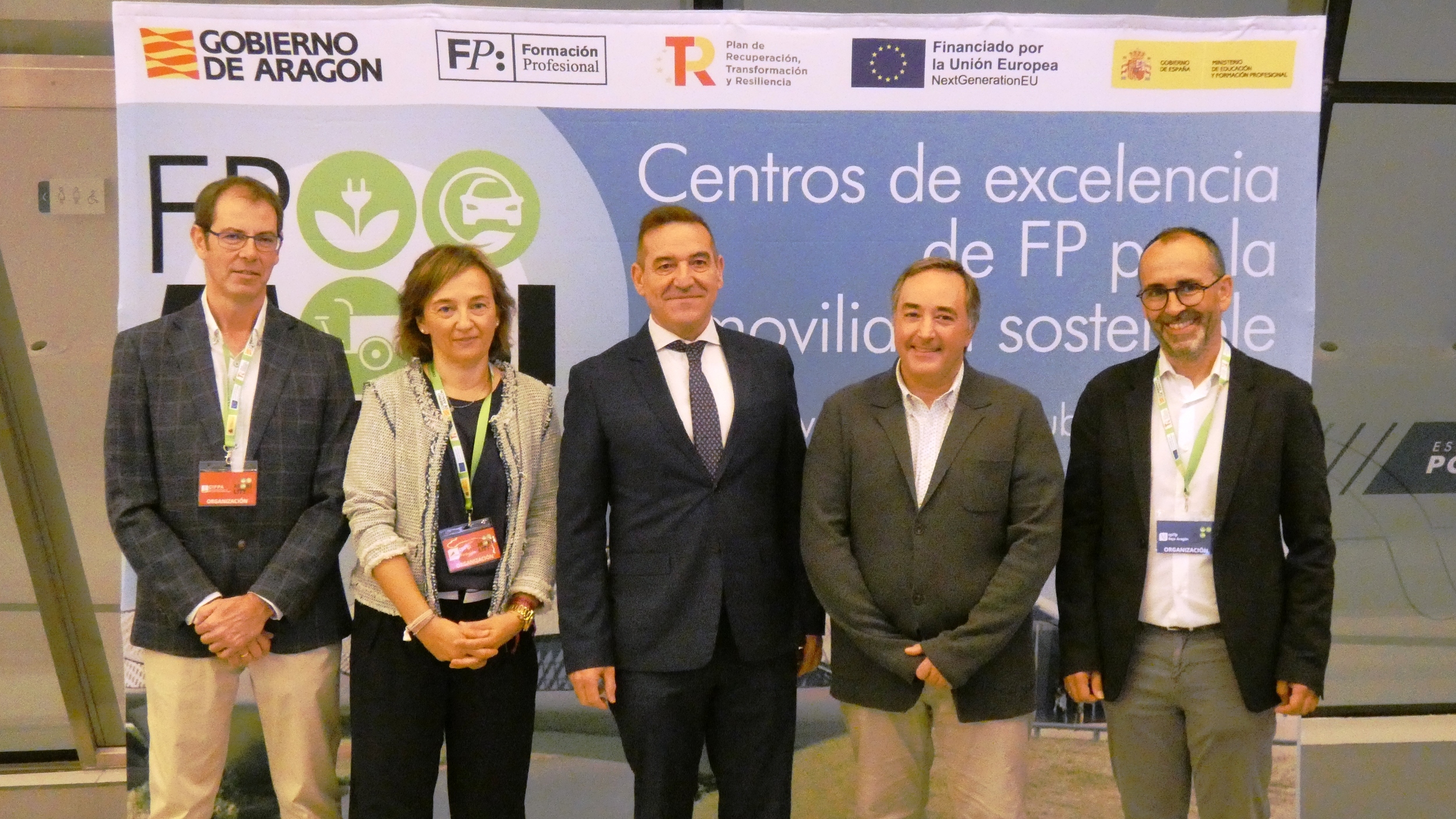
19 Oct Centers of excellence in vocational training and the challenge of sustainable mobility
The general director of Planning, Centers and Vocational Training, Luis Mallada has inaugurated the Congress FP Mobility23. At the center of this meeting are the three Aragonese centers that are part of the State Network of Centers of Excellence in Vocational Training: the CPIFP Bajo Aragón de Alcañiz; the CPIFP Pirámide, Huesca and the Innovation Center for Vocational Training of Aragon (CIFPA), Zaragoza. These centers, within the State Network, are linked, respectively, to the automotive, renewable energy and, finally, transport and logistics sectors.
The common thread of this congress has been sustainable mobility, one of the objectives of the three centers of excellence to work, from the classroom, actions that promote this transformation in the field of mobility. Also, at the meeting, companies and VET teachers shared time to talk about professional profiles and competencies and training needs.
The setting for this meeting was the Zaha Hadid Bridge, where the Mobility Museum is located, an initiative of Mobility City, which in turn is promoted by the Ibercaja Foundation together with the Government of Aragon. This space was chosen as the venue for this event because its aims and philosophy coincide, to a large extent, with the three centers of excellence: to work for innovation, training and dissemination in the areas of sustainability, efficiency and respect for the environment. This meeting was led by Jaime Armengol, coordinator of Mobility City at Fundación Ibercaja.
The program included two presentations: the first by the Director General of Planning, Centers and Vocational Training, Luis Mallada, on the State Network of Centers of Excellence in Vocational Training. The second was given by José Antonio Ondiviela, director of Smart Cities Solutions at Microsoft, on the theme: "Future of urban mobility: essential evolution of cities".
Sector maps
The meeting analyzed the current situation of the three economic sectors -automotive, renewable energies and transport and logistics- that the three educational entities represent within the State Network of Vocational Training Centers of Excellence. The company Smartpoint has made the sectoral maps of the three economic areas in order to know, based on current and real data, issues related to job profiles, training needs, priorities in terms of technological transformation, etc. With this information, the three educational centers will have an updated view of the situation in order to be able to anticipate changes in labor, technology, production and organization as they occur.
Centers of excellence, an opportunity for Aragon's vocational education and training system
This meeting was organized by the educational centers: CPIFP Bajo Aragón, CPIFP Pirámide and CIFPA with the support and collaboration of Mobility City, an initiative of the Ibercaja Foundation, and the Department of Education, Science and Universities of the Government of Aragon.
Both CPIFP Pirámide, as well as CPIFP Bajo Aragón and CIFPA entered the state network of excellence in its first call corresponding to the year 2022. At present, this network is made up of 45 centers, distributed throughout the 17 autonomous communities.
In this event, the general director of Planning, Centers and Vocational Training, Luis Mallada, indicated that Aragon has presented the candidacy of three new centers for the State Network of Excellence. These are the integrated public centers Corona de Aragón and Los Enlaces, both in Zaragoza, and Montearagón, in Huesca, which could be added to the three already included since last year, for which the Community received 3 million to design and develop innovation projects within the framework of the transport and logistics, automobile and renewable energy sectors. Luis Mallada has indicated that "excellence is worked, planned, requires great talent and a great organization". He also said that these centers "in addition to leading the digital and methodological transformation of vocational training, organize teacher training activities at state level, collaborate in detecting the need for new profiles and in the curricular review of the academic offerings". Its creation responds -as he pointed out- to the objective of "promoting the collaborative process between educational centers and the business network to facilitate the transfer of knowledge".



